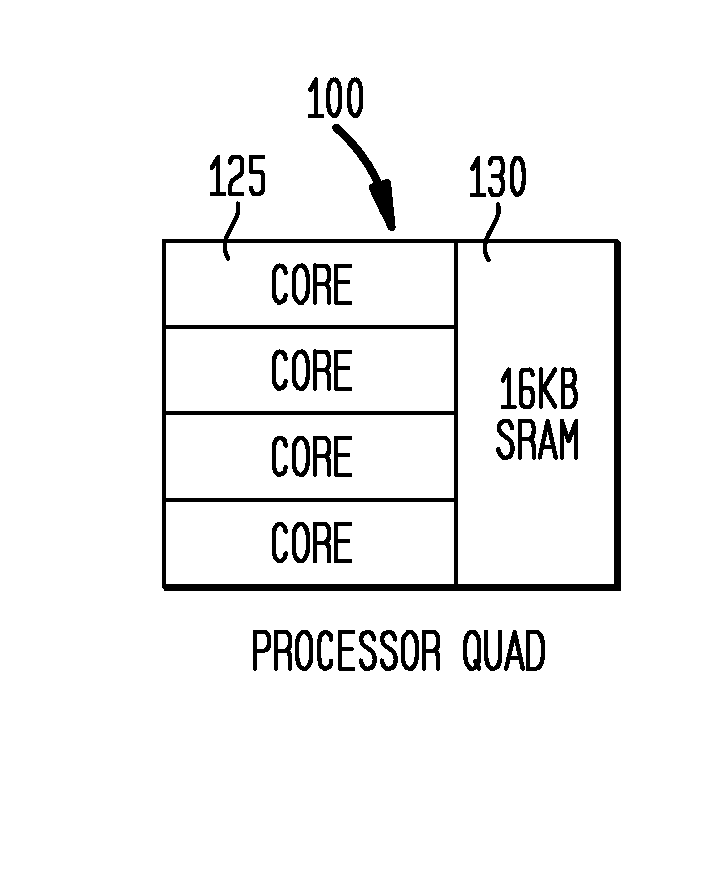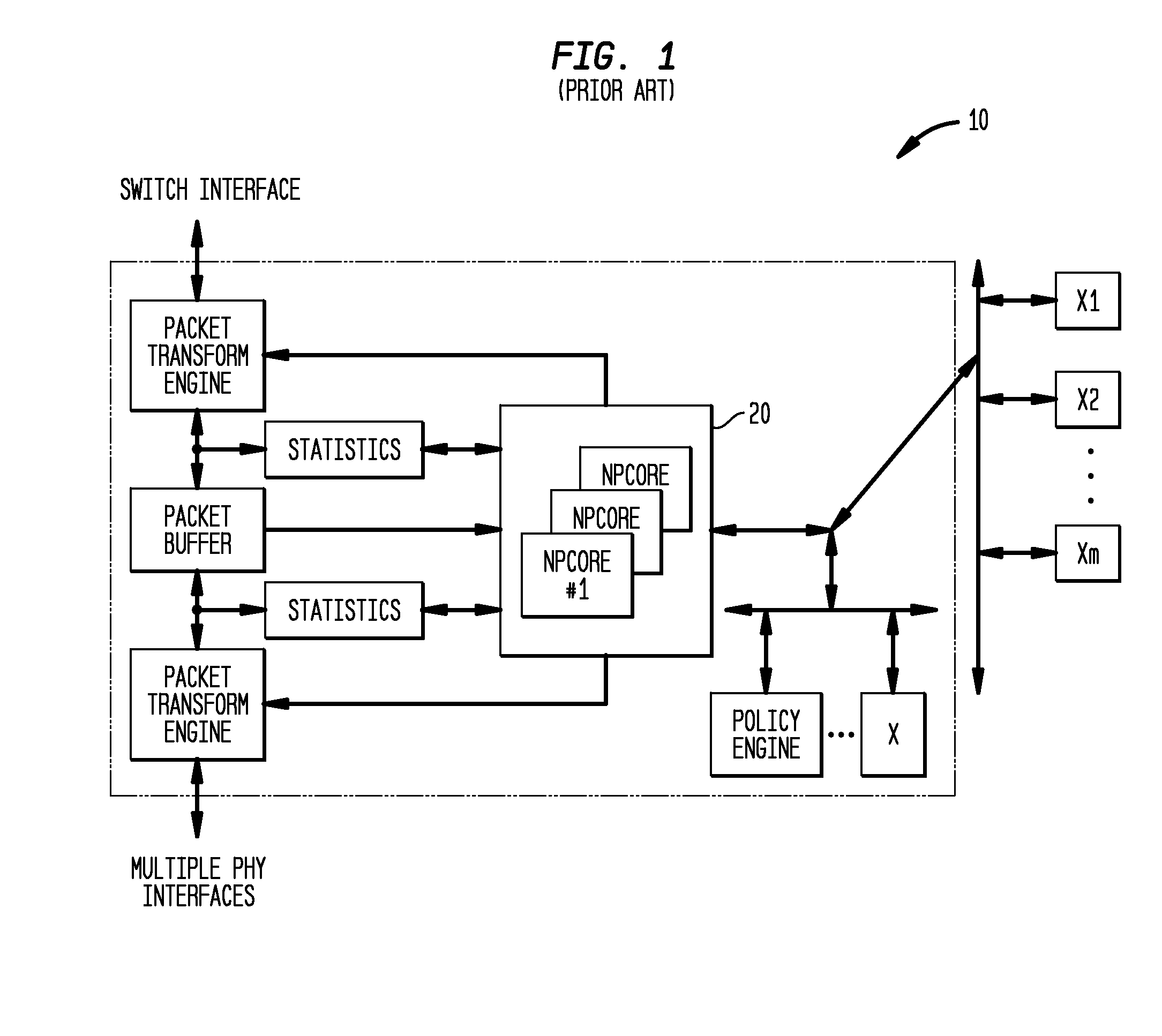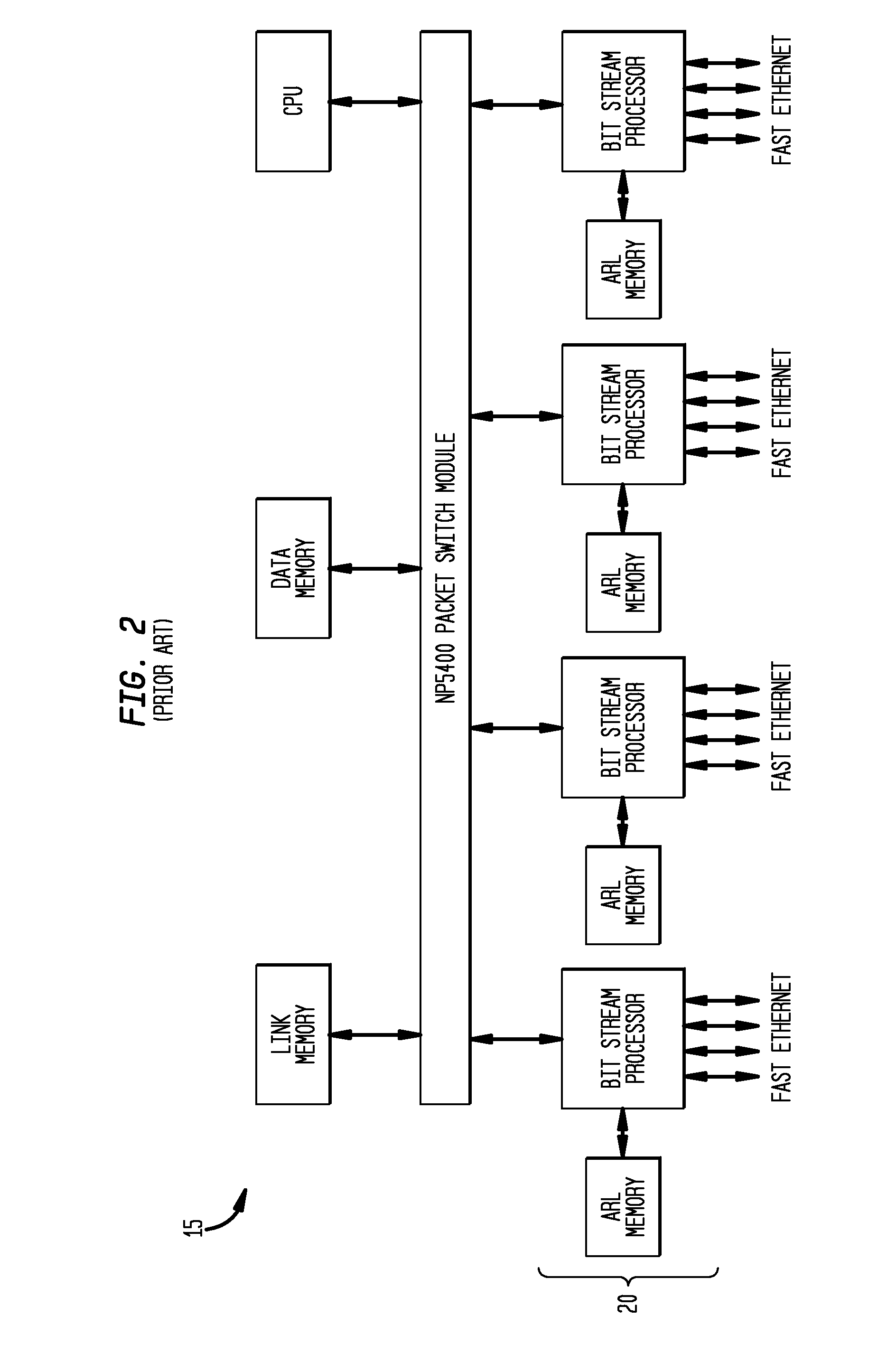Self-contained processor subsystem as component for system-on-chip design
a self-contained processor and design technology, applied in the field of network processor devices, can solve the problems of increased failure susceptibility, high modelling overhead, and high cost of high-interconnect multi-layer boards, and achieve the effects of significantly reducing cache latency, improving processor speed, and reducing off-chip access times
- Summary
- Abstract
- Description
- Claims
- Application Information
AI Technical Summary
Benefits of technology
Problems solved by technology
Method used
Image
Examples
first embodiment
[0048]FIG. 6 depicts an SoC Network Attached Processor 200 employing the self-contained multiprocessor subsystem 150′ of FIGS. 5 and 10. The CyclopsE available from assignee IBM, is one possibility for use as the subsystem 150′. In the embodiment of FIG. 6, the subsystem 150′ is connected to a processor local bus 210 which may comprise, e.g., a SoC standardized processor-local bus (PLB) such as ARM AMBA (Advanced Microcontroller Bus Architecture), MIPs (Microprocessor Interface Program), the open standard CoreConnect, AHB (Advanced High-Performance Bus), etc. via a common macro (e.g., a PLB connector macro), enabling a true plug-n-play system on a chip (SOC) to a multi-source bus architecture.
[0049] It should be understood that the embodiment of the Network Attached Processor 200 depicted in FIGS. 6 and 10 implements a PowerPC or other like processor 225 for providing computational capability in the SoC subsystem. Equivalently, a PPC440 may be replaced with another PPC core, a MIPS ...
second embodiment
[0050]FIG. 7 illustrates the System-on-Chip (SoC) network attached multiprocessing system 300 according to the invention. As in FIG. 6, the SoC multiprocessing system 300 of FIG. 7 comprises the processor (e.g., a 440 core), a local processor bus (PLB) 210, on-chip peripheral bus (OPB), and a number of components, such as SRAM, DDR controller, PCI-X bridge, and DMA controller, however includes an OPB bridge 229 interfacing with the OPB bus 240. The processor bus or PLB 210 is a SoC standardized processor local bus such as AMBA, MIPs, CoreConnect PLB, AHB, etc. One of the components connected to the PLB 210 is a processor based subsystem 350 described in greater detail hereinbelow with respect to FIG. 8. The elements depicted in FIG. 7 are exemplary and non-limiting. For example, PPC440 can be replaced with another PPC core like PPC 405 or PPC440, or ARM or MIPS processor cores, or other such microprocessor as selected by SoC integrator or may include completely novel cores without l...
PUM
 Login to View More
Login to View More Abstract
Description
Claims
Application Information
 Login to View More
Login to View More - R&D
- Intellectual Property
- Life Sciences
- Materials
- Tech Scout
- Unparalleled Data Quality
- Higher Quality Content
- 60% Fewer Hallucinations
Browse by: Latest US Patents, China's latest patents, Technical Efficacy Thesaurus, Application Domain, Technology Topic, Popular Technical Reports.
© 2025 PatSnap. All rights reserved.Legal|Privacy policy|Modern Slavery Act Transparency Statement|Sitemap|About US| Contact US: help@patsnap.com



